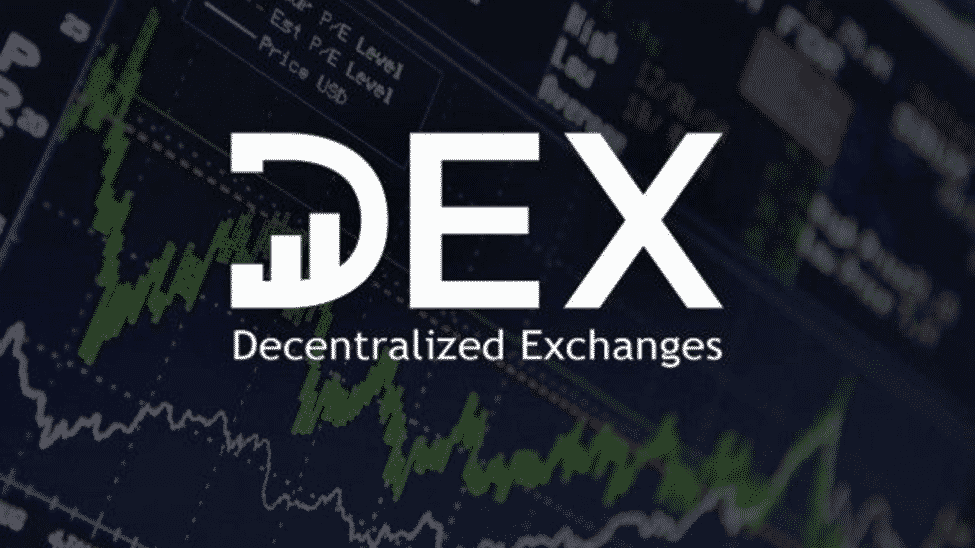Decentralized exchanges, or DEXs, are called P2P marketplaces where the cryptocurrency traders and investors make transactions straight without handing on the management of the funds to intermediary and custodian. Such transactions will be facilitated through the use of the self-executing agreements that are written in the code known as smart contracts.

What’re Decentralized Exchanges?
DEX mainly relies on smart contracts that will allow the traders to perform orders without any intermediary. Alternatively, centralized exchanges will be managed by the centralized organization like the bank that is involved in the financial services who are looking to make some profit.
The centralized exchanges account for huge trading volume in this cryptocurrency market as they’re regulated entities, which custody funds of the users and provide simple-to-use trading platforms for the newcomers. Many centralized exchanges offer insurance on the deposited assets.
Check out the bitcoin circuit app to automate your crypto trading strategies!
How does DEX function?
Since decentralized exchanges are made on the top of the blockchain networks, which support the smart contracts or where users keep the custody of the funds, each trade incurs the transaction fee all along with their trading fee. Essentially, traders interact with the smart contracts on their blockchain for using DEXs.
There are three kinds of DEX and they are automated market makers, DEX aggregators, and Order books DEX. All of them will allow the users to trade straight with one another through smart contracts. Your first decentralized exchanges have used a similar kind of order books, same to the centralized exchanges.
Here’re some other benefits of DEX:
You Stay in Control of Money
In the traditional stock exchange, it is important to have a ‘trading account’ for storing your funds for buying stocks and to get funds while selling these stocks. In centralized crypto exchanges, a trading account is an e-wallet that is offered by an exchange. Given these cyber-security risks, when it comes to holding the e-wallet on the centralized exchange it is filled with counterparty risks.
The decentralized exchange can be distinguished by an absence of the e-wallet provided by an exchange to facilitate these transactions. The DEX does not ask you to transfer the funds to their wallet or for a trading account to do trading transactions. In such a case, you will be in complete control of the funds and it is one important feature for the crypto platform that is quite vulnerable to thefts and hacking.
Privacy
Most of the centralized exchanges need sign-ups that will comply with KYC requirements. It forces cryptocurrency users to give up their personal information to that exchange operator.
Most of the DEXs don’t implement such a thing. As they aren’t maintained by a central authority, right now there is not any need of using the KYC protocols. It offers users complete privacy while trading over DEXs. But, rumors are circulating that US regulators and FATF are searching for ways to enforce the pattern of KYC on the crypto wallets by 2021.
Availability of the Token
The centralized exchanges need to get tokens individually and make sure that they comply with the local rules before listing them out. The decentralized exchanges will include tokens minted on this blockchain that they are built over; it means that the new projects can likely list over the exchanges before being made available on the centralized counterparts.
Whereas this will mean traders get in when on the projects, it implies that different types of scams will be listed on the DEXs. The common scam is called a “rug pull,” it is one typical exit scam. The rug pulls happen when a team behind the project dumps their tokens used for giving liquidity on the exchanges’ pools when the rate goes up and makes it just impossible for trades to sell out.
Development of DEX
The advantages of the decentralized exchange encourage many entrepreneurs to think of the DEX development. The decentralized exchanges are very less costly to maintain compared to the centralized ones as you do not have to invest in the servers or complex security mechanisms (the decentralized solutions are much safer than the centralized ones), and processes will be automated.
But, you must remember that crypto exchange development needs very good blockchain expertise or an experienced development team. There’re a lot of examples of poorly made DeFi projects, which failed to function completely.
